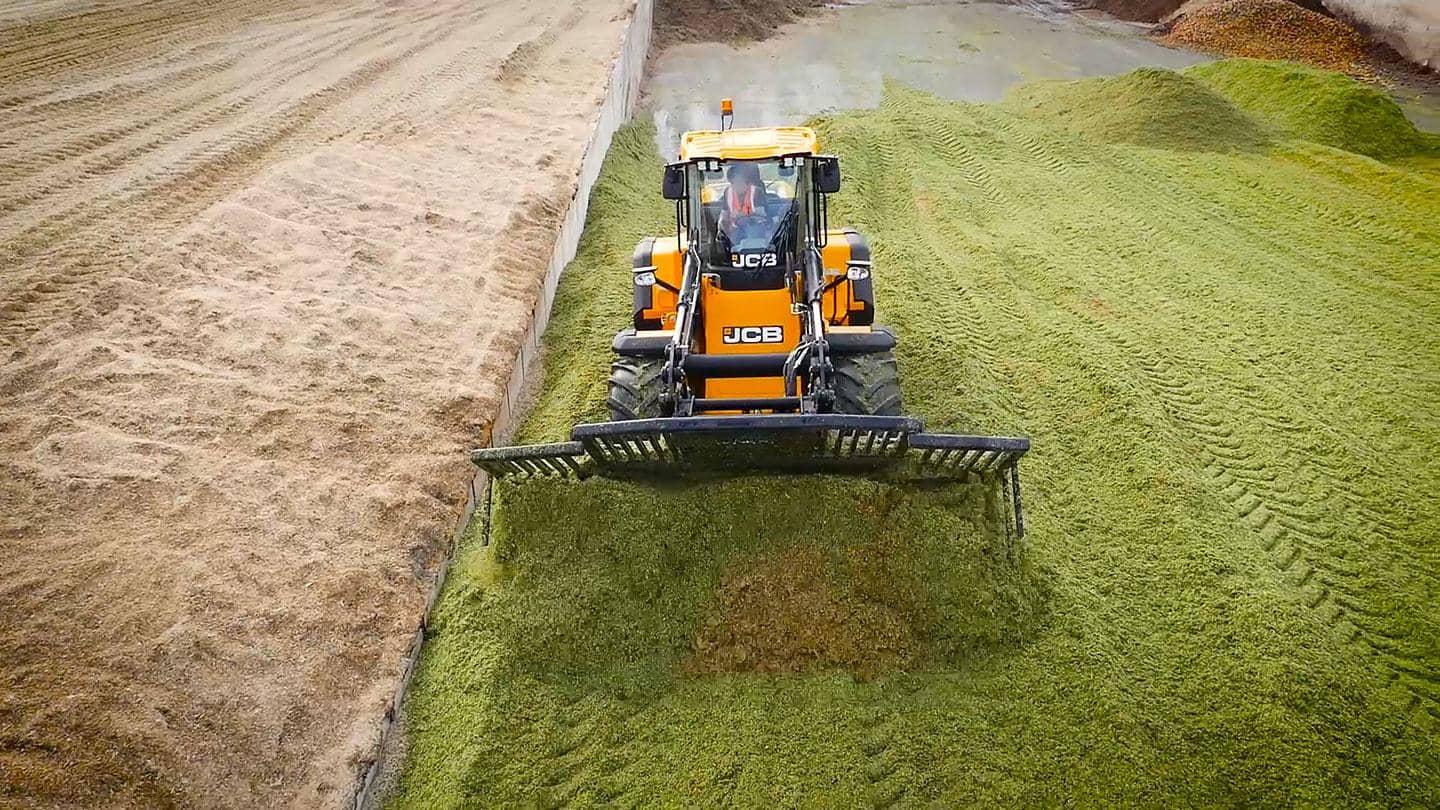
Growth
In Business: a constructive relationship
Graeme Macdonald, Chief Executive Officer (CEO) of JCB, explains how Barclays has supported the iconic construction equipment company on its journey from a lockup garage in Uttoxeter to a multibillion-pound global business.
Think you’ve never heard of Joseph Cyril Bamford? Think again: the post-war entrepreneur’s initials – JCB – grace the sides of hundreds of thousands of pieces of yellow construction equipment around the world.
“We’re a global construction equipment manufacturer, the third largest in the world by volume,” says CEO Graeme Macdonald.
“We manufacture in 22 factories around the world, eleven of which are right here in the UK, including our headquarters.”
Our relationship dates back to 1945. We value that relationship; it’s more than just providing banking services
CEO, JCB
A lock up garage and a family to feed
JCB is now a global success story, employing 15,000 people, but its association with Barclays goes back to the company’s humble beginnings in 1945, when Bamford founded the business.
After the Second World War, the engineer returned home from overseas and set about building agricultural trailers. The new enterprise opened its doors on 23 October, the day his son Anthony was born, with Bamford famously remarking that having a family and no money helped to “concentrate my mind”.`
Recounting JCB’s history, Macdonald says: “When he established the business it was himself and three employees and a lock up garage.”
“The first bank account he opened was at the local branch of Barclays in Uttoxeter. Our relationship dates back to 1945. We value that relationship; it’s more than just providing banking services”.
Matthew Porter, JCB’s Relationship Director at Barclays, says he’s proud of the bank’s involvement with such an “iconic” brand.
“A banking relationship is about a lot more than banking services and products – it’s about relationships, it’s about the people, it’s about the service we provide and the added value we can deliver to those relationships.”
Porter says that while Barclays supports JCB on a day-to-day banking level, it is the bank’s provision of extra services that has been critical for the company’s growth.
“We like to finance JCB’s growth, aspirations, support their overseas trade operations. On every level we look to innovate on the banking side to meet the company’s needs.”
“Innovation is our life blood”
It’s this innovative spirit that has been the secret of JCB’s success throughout the years. Diversification into hydraulic equipment proved to be a turning point for the company in 1947, when JCB’s hydraulic loader became one of the driving forces behind the post-war mechanisation of agriculture that allowed the UK to feed its growing population.
Macdonald says new product launches still fuel JCB’s success, and the business is hungry to produce more innovations for its customers. “We have a phrase of ‘innovation is our life blood’ – and we live it and breathe it every day.”
When researching a new product, he says the company asks itself what the customer wants from its machines. “We look at how the machines are used in the respective industries and we design and develop machines that really have innovative features and benefits for those customers.”

Graeme Macdonald, CEO, JCB
We have a phrase – ‘innovation is our life blood’ – and we live it and breathe it every day
CEO, JCB
Keeping the family feel
Despite its size and growth, JCB remains privately owned by the Bamford family. Macdonald says that retaining a family feel and good standing in the local community is central to the manufacturer’s identity.
“JCB is a family business and we value the extended family of our employees, our suppliers, our customers, our dealers and our financial partners.”
The company strives to be an ‘employer of choice in the local area’, and is even the headline sponsor for a local school, the JCB Academy, to educate teenagers with an engineering bent.
“Where we’re located, in the Midlands, there’s a lot of great companies in this region that offer competition for employees. We invest a lot in training and development,” says Macdonald.
The company currently recruits around 150 people a year. Graduates from the JCB Academy – which is open to 13-18-year olds – can choose between starting JCB apprenticeships and going to university when they come to leave the school. They may go on to work with JCB or at other manufacturing or engineering companies in the Midlands or beyond.
The company supports communities in other areas of the globe too, with several charitable trusts focussing on education and children’s welfare. It also has a relationship with the NSPCC.
Macdonald says: “I think the trendy name is corporate social responsibility, but we’ve been doing it for many, many years. It’s very well embedded in the JCB DNA.”
For JCB, the future is bright as well as yellow. “In an ever-evolving industry, our relationship has stretched over decades,” says Macdonald. “Our strategy over the next two to three years will be to grow market share, and we do that by investment in great new products, manufacturing capability and distribution. We can’t do that alone and that’s why we need a great partner like Barclays.”
As the company continues to grow, Macdonald is sure that Barclays will support it all the way. “The great thing about Barclays is that because we’ve had such a longstanding relationship, they really have a deep understanding not only of JCB, but of our industry.
“They can provide great innovative solutions such as trade financing for this specific industry, and they really understand the mechanics of how that operates. And that makes growing our business so much easier.”